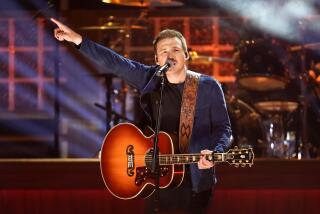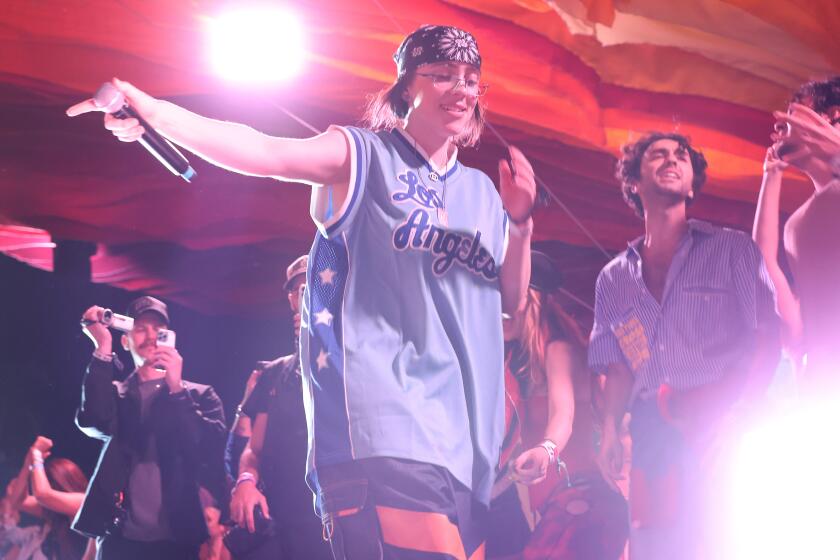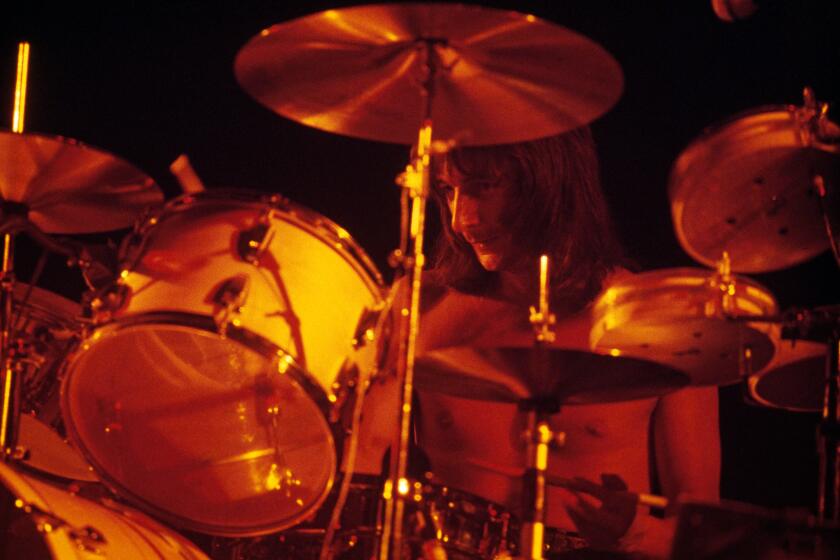Memorable Night With Oscar Peterson
Oscar Peterson has registered so many extraordinary achievements in half a century of jazz piano stardom that it’s hard to imagine what he could do to top himself.
He was already an extraordinary artist, after all, when his first Verve recordings arrived in the early ‘50s. And the seemingly endless string of albums and live performances--often with his own trios and quartets, frequently in all-star settings, occasionally with such figures as Dizzy Gillespie, Roy Eldridge and the Count Basie Orchestra--revealed, with remarkable consistency, one of the most consummately gifted pianists in the history of jazz.
But one could make a case that his most stunning achievement has been the playing he has generated since the stroke he experienced in 1993. And the best evidence was on display Wednesday night in his performance at the Hollywood Bowl.
Essentially functioning as a right-handed pianist, Peterson used his left hand only to add low-note accents and occasionally fill out chords; mobility up and down the keyboard with that hand seemed extremely restricted. Yet, as pianist Benny Green once noted, Peterson can do more with one hand than many pianists can do with two.
Watching him play, noting the subtle compensations he made, sometimes simultaneously playing a melody and a counter line with his right hand, was a remarkable experience. Even more amazing, however, was that--after one spent a few moments closely observing his adjustments--the music quickly took over. Set aside were any questions about the technical details in the wake of Peterson’s ever-potent capacity to deliver imaginative jazz lines with an utterly irresistible sense of swing.
He was enormously aided by a powerful group of musical associates: guitarist Ulf Wakenius, bassist Niels-Henning Orsted Pedersen and drummer Martin Drew. Their contributions--in addition to their buoyant supportiveness--were brilliant in their own right. Orsted Pedersen’s capacity to create a burningly intense groove was front and center in Peterson’s original “Kelly’s Blues,” and Wakenius’ solo on Peterson’s ballad “When Summer Comes” was an astounding synthesis of blues patterns and passionate melodies.
Among the other program highlights in what was far and away this season’s most superlative jazz event at the Bowl: the crisp tenor saxophone work and witty vocalizing of James Moody and the brawny playing of the Clayton-Hamilton Orchestra, working well as a unit and offering--in John Clayton’s version of Peterson’s “Canadiana Suite”--the sort of performance that has always seemed possible but too often remained tantalizingly out of reach. This time, they got it right, perfectly timed for a memorable evening.
More to Read
The biggest entertainment stories
Get our big stories about Hollywood, film, television, music, arts, culture and more right in your inbox as soon as they publish.
You may occasionally receive promotional content from the Los Angeles Times.






